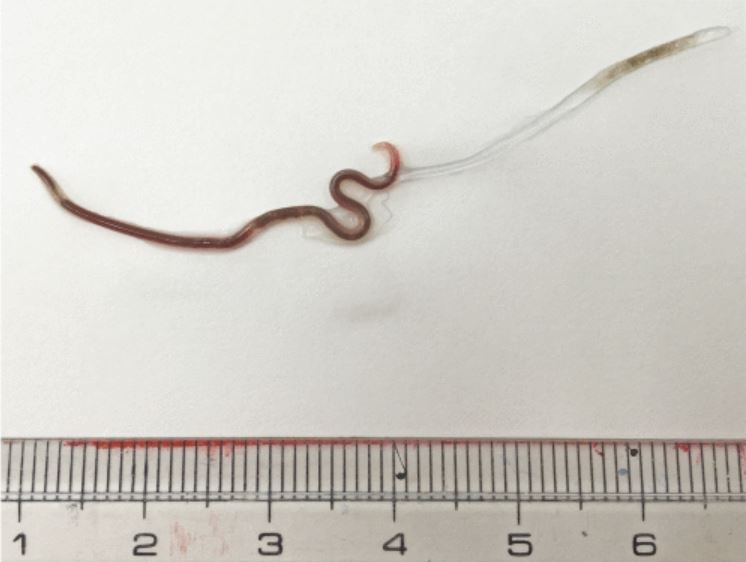
Woman's sore throat was really a worm living in her tonsil
She likely contracted the parasitic worm after eating sashimi.

That tickle in your throat? It could be allergies, irritation or even COVID-19.
But here's one explanation that may not be on your radar: a worm wriggling in your tonsils.
At least, that was the cause of one woman's sore throat in Japan, according to a new report of the case.
The woman likely contracted the parasitic worm after eating sashimi, or raw rish, according the report, published July 8 in The American Journal of Tropical Medicine and Hygiene.
The 25-year-old woman went to the hospital after experiencing pain and irritation in her throat for five days. Her symptoms began after she consumed "assorted sashimi," the report said. Doctor's soon identified the culitrp: a 1.5-inch (38 millimeter) black worm in her tonsil.

Further tests revealed that the woman had been infected with Pseudoterranova azarasi, a parasitic roundworm, that typically infects marine mammals such as walruses and seals, Newsweek reported. However, humans can contract the worm through consumption of raw fish or squid, Newsweek reported. When Pseudoterranova is seen, it is usually found in the stomach, and infections in the throat are rare, the report said.
Pseudoterranova belongs to the same family as a more common parasitic roundworm called Anisakis simplex, which also causes stomach infections.
Sign up for the Live Science daily newsletter now
Get the world’s most fascinating discoveries delivered straight to your inbox.
Doctors were able to remove the worm with tweezers, and the woman's symptoms improved rapidly, the report said.
Originally published on Live Science.

Rachael is a Live Science contributor, and was a former channel editor and senior writer for Live Science between 2010 and 2022. She has a master's degree in journalism from New York University's Science, Health and Environmental Reporting Program. She also holds a B.S. in molecular biology and an M.S. in biology from the University of California, San Diego. Her work has appeared in Scienceline, The Washington Post and Scientific American.









